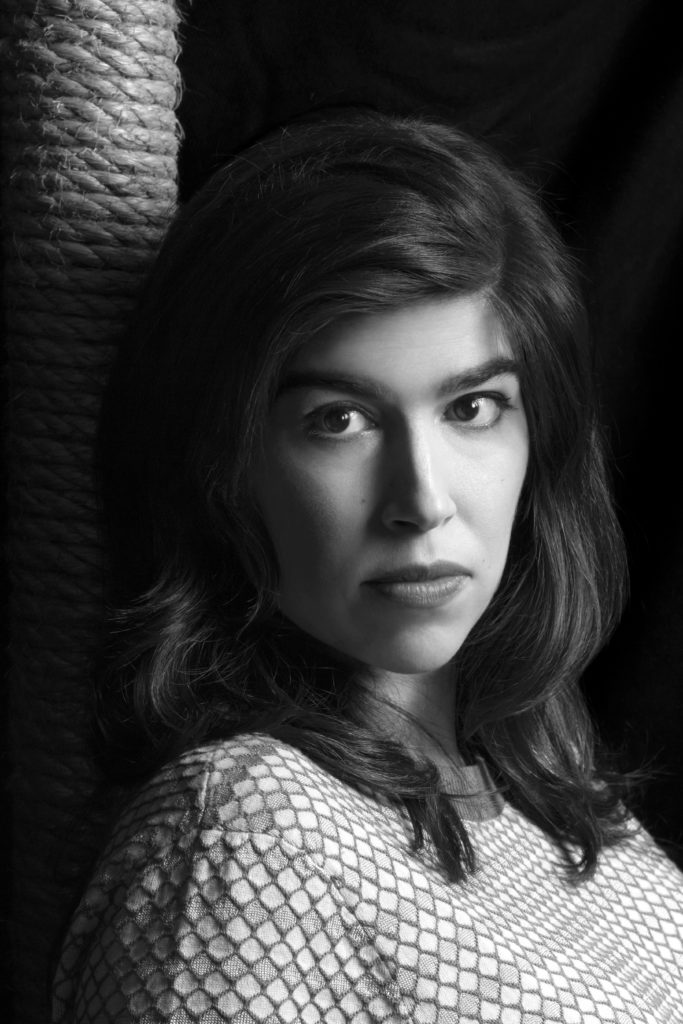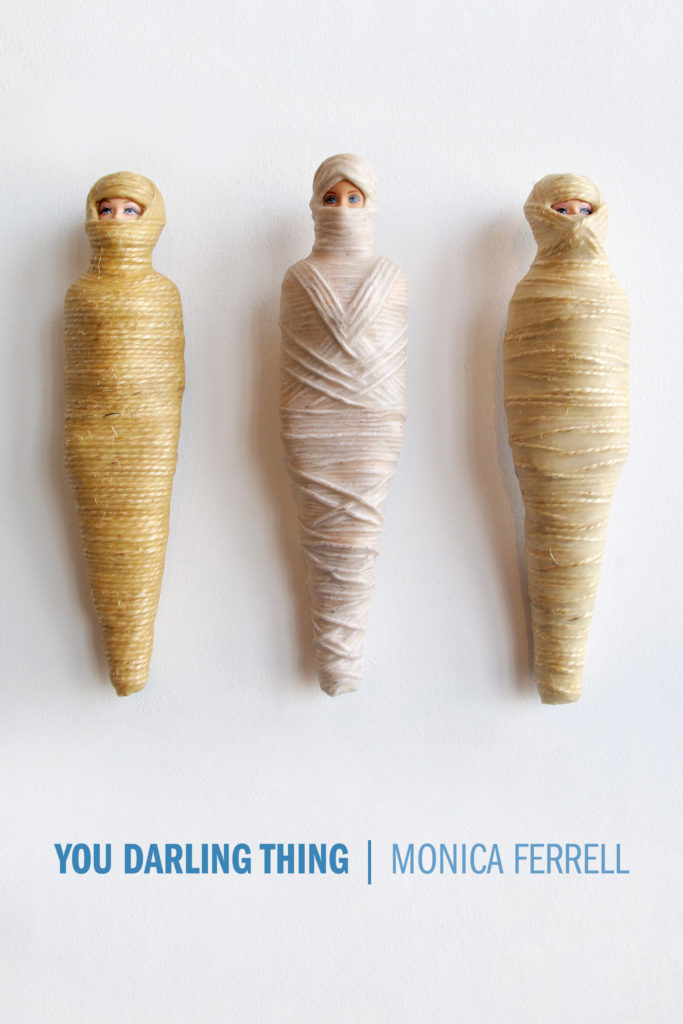Monica Ferrell: Motherhood, Femininity, and Violent Voyeurism in You Darling Thing

I finally had the chance to dive into one of our 2020 Kingsley Tufts Poetry Award Finalists collections. Monica Ferrell‘s newest collection, You Darling Thing, (Four Way Books, 2018) was an absolute gift to read. Tackling ideas of motherhood, femininity, and the inherent violent voyeurism of the male gaze, I cannot recommend this book enough.
I want to discuss a few poems specifically that, for me, were the standouts of the collection.
In “The Waves,” Ferrell dives into three separate sections which force the reader to arrive at both place and image. The first verse shows the narrator being observed by old men, children, and an unnamed mother. The middle “section” is one enjambed line, giving the central pull of the poem: “I will die / If before nightfall no one touches me.” This line, which is rough and raw in its immediacy of action, pushes the reader into the both physical and imagined space of the last stanza. There, the narrator mentioned that “they” will take them to a hospital, and lay them “down on the bed like an ivory blade.” While I think the lack of pronoun clarity is inventive, the standout to me is the last sentence where color adjectives culminate in an imagined seascape.
“Savage Bride” is an absolute masterclass in stacked metaphors. I think attempting to give my reading of this poem would be a disservice to it so I’m just going to give a couple of my favorite lines: “You taste me the way the claws / Of a pigeon taste that window ledge on which it sits / The way water tastes rust in the pipes it shuttles through.”

Violence and terror intermingle with passion and lust in “Glacier.” The sixteen-year-old narrator imagines a world in which a murderer wants her, “gaze slits wool and cotton as she walks.” She moves on from his view and imagines her parents discovering her in a morgue. The violent images don’t stop there though, as she brushes past fiberglass cuts, hair pulling, and burnt-down houses. It closes on the imagined image of a missing child, not there to see “her mother’s setting plates at dusk.” It’s a terrifying place to end but also delves into the crux of violence and longing.
Ferrell also explores multiple women in history through fantastic persona poems. My favorite cover Beatrice D’Este and Ariadne, both tragic and powerful in their own right. The Beatrice poem ends with a specific image: Beatrice laying in bed after sleeping with her husband. In such a moving and beautiful way, Ferrell showcases the image of the woman, lying, spent, “beaten / thinner than gold leaf.” But while the image of precious metal may have a positive connotation, it doesn’t here; Beatrice instead explores herself as “a vanishing point,” one in which she had been “used so completely [she] was seen through.” This dichotomy between something so precious and yet feeling completely invisible is so fascinating and well done.

Those were some of the major poems for me, but I do recommend reading the collection in its entirety. When you do, you’ll be able to see the themes and even lines that Ferrell carries through each poem. I know I’ll be gifting this collection to some of my friends for the holiday season!
—Lauren Davila
Share